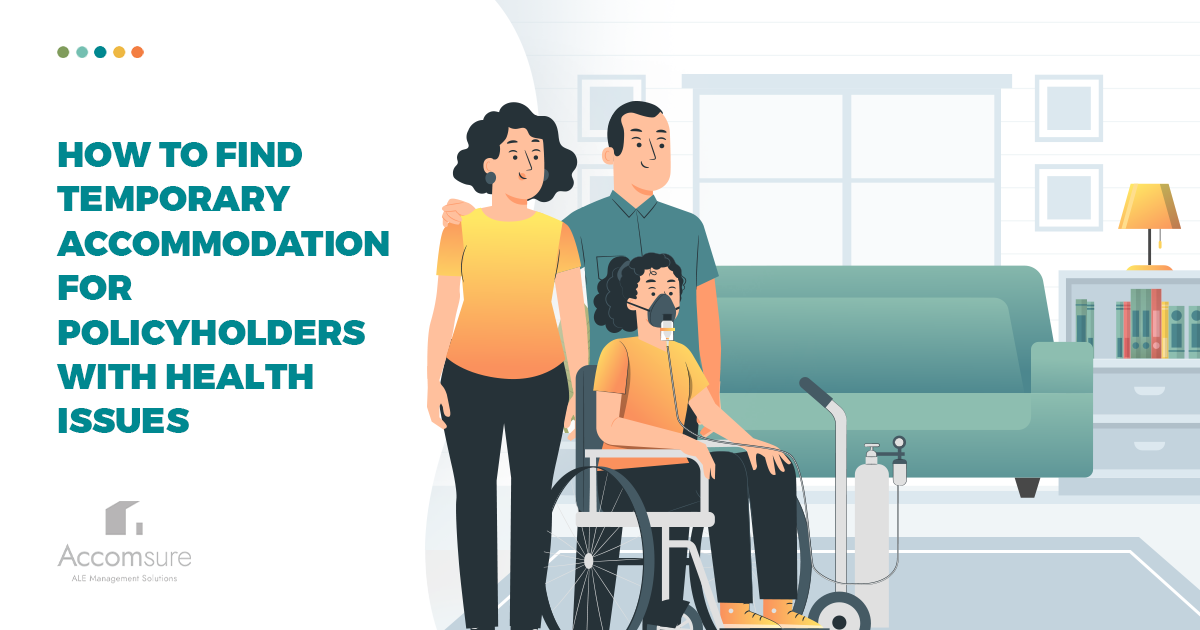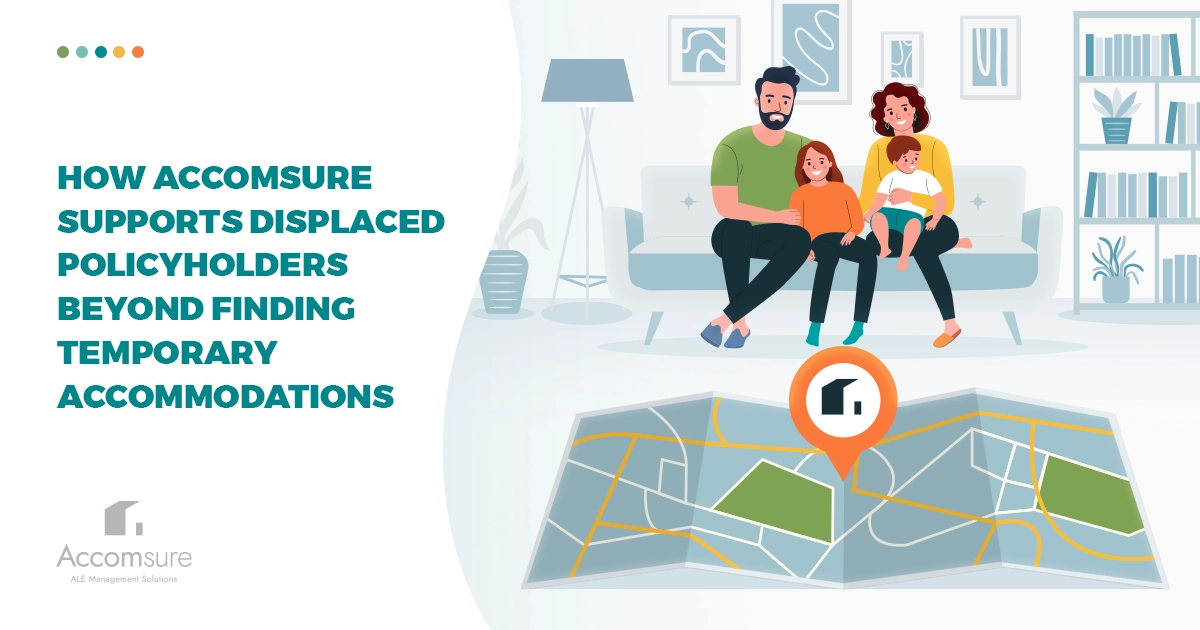Did you know one in five Canadians live with either a cardiovascular disease, cancer, chronic respiratory disease, diabetes, or a form of disability? The chances of you having policyholders who live with chronic illnesses is high.
Should policyholders with serious health issues become displaced from their home, finding appropriate temporary accomodations can be especially tricky.
In this blog, we’ll lay out the specific housing needs policyholders with health issues may have, the difficulties in finding temporary housing, and the best way to find accessible accommodations
should disaster strike.
The Housing Needs of Policyholders With Health Issues
According to Statistics Canada, 44.9% of those living with disabilities require at least one type of assisted device or accessibility feature in their home.
For example, policyholders with mobility impairment due to a chronic condition may need accommodation with limited or no stairs, larger accessible washrooms and reinforced walls for grab bars. On the other hand, policyholders with breathing difficulties may require a pet-free, smoke-free environment with enhanced cleanliness to ensure that they don’t experience respiratory distress in their temporary home.
Individuals who have health issues require housing where their health isn’t put at greater risk so that they can try to live their normal lives even though their sense of normalcy has been disrupted. Oftentimes, these policyholders not only need a temporary house that meets their at-home needs but they may also need to reside in a neighbourhood close to health care services or public transportation, which adds an additional layer of difficulty.
The Challenges of Finding Housing for Those Living With Health Issues
Finding temporary housing for a policyholder living without health concerns can seem stressful, but finding accommodations for policyholders that require specific housing requirements brings new challenges to the table.
Increase in Time Spent Looking for Housing
While finding a temporary house, policyholders often reside in hotels that typically don’t have accessible features. Not only is this expensive, but this can also take a considerable toll on the policyholder’s mental and physical health.
Increase in Claim Costs
The longer it takes to find housing, the more the insurance claim costs. This is due to the cost of living in a hotel, eating out because of a lack of a kitchen, or paying for storage for salvaged personal items. For those living with health issues who have more challenging criteria for their temporary accommodation, the longer waiting period of finding housing that suits their needs will often further increase the cost of the claim.
How Accomsure Can Help You Find Temporary Accommodations

At Accomsure, we understand just how difficult it can be to find temporary housing for policyholders, especially those living with health issues. That’s why we offer ALE management support. With our support, you can rely on us to help your displaced policyholders with their immediate needs while you focus your time and energy on managing the claim.
We have a large list of contacts that allow us to find temporary housing as quickly as possible. For example, we previously helped a senior couple with serious health issues find temporary accommodation after they experienced flood damage in their home. We were able to draw from our extensive industry contacts to find affordable housing that met their personal needs while staying within claim limits, helping save more than 28% in claim costs.
If your policyholder suffers from health issues or has unique criteria for their temporary housing, submit a claim with Accomsure. We’ll ensure they find housing that works for their lifestyle while staying within claim limits.




